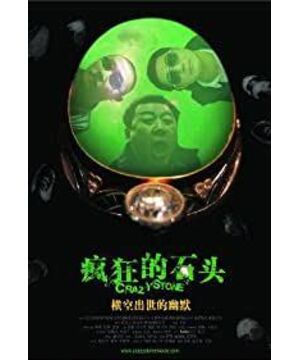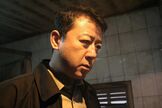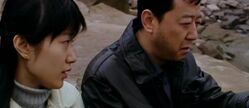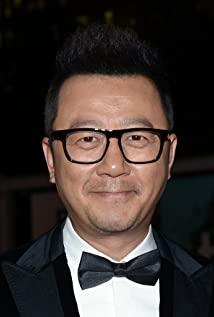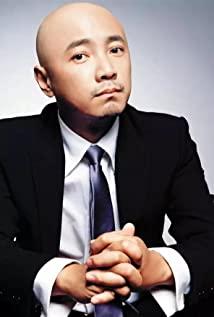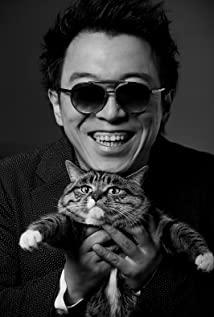Today's young directors, young directors in China, the last thing they can't do is take risks and express too much of themselves. That sort of thing with Messy Hair isn't going to happen again, and the young director has neither the courage nor the encouragement. So there is a big platter for the first half of "Crazy Stone".
Two of the most classic narrative techniques in Snatch made Ning Hao "plagiarize" into his own film, one was a crash, the other was a crackling, quick and indirect shot, and finally a stamp of "Hong Kong" was stamped on the map. In Snatch, these two expressive techniques are used in a leisurely manner. The former one sets off another climax of the film, highlighting the film's features full of coincidences and dark humor, while the latter one is a completely personal stylized narrative method. , I see the director's wisdom and narrative ability.
However, at the beginning of "Crazy Stone", Ning Hao used these two narrative techniques, and could not see his own creativity, especially the second one, which can be said to be a poor imitation, and even disturbed the clarity of the narrative itself. .
In the film, you can see more than just Guy Ritchie, director Snatch alone. So then I was thinking, what is imitation and what is tribute?
When there are plots and scenes in your movie that are familiar, some we call a homage to a great film, and some we think are plagiarism or imitation when we blow air out of our noses.
Later, I thought, the so-called tribute, first of all, this kind of expression is a natural part of the director's own film, but a plot and a narrative method in a great movie once inspired the director, or the director I reserved a place for this classic technique, and made the stuffing of my film well wrapped in the skin of this lens language. After watching it, I felt both nostalgic and natural, as it should be.
Paying tribute is as if the emperor saw He Shen at the time and wondered if his dead beloved concubine had been reincarnated again? This is a feeling that touches the soul and brings you a kind of divine resemblance.
In the case of plagiarism, on the contrary, even if you borrow someone else's narrative technique, there is still a vague sense of powerlessness, or a sense of abruptness of overkill.
But from another perspective, plagiarism like "Crazy Stone" is showing the sincerity of the monkeys wanting to become human. Everything starts with imitation, isn't this the value of a typical artistic creation?
Okay, I'll give you another list of those movies that were put together. "Green Mile" and "The Robbery." The old man can't urinate, just like Tom Hanks in "The Green Mile", this is borrowing someone else's situation, so why can't the old man urinate? Then take a look at "Looking for the Robbery", because the old bag has also reached a mid-life crisis, a middle-aged man's journey of finding himself. Jiang Wen's self-search is to find his own gun, and Lao Bao's self-search is to release a pee, which symbolizes a painful and helpless depression.
"12 Arhats", "Infernal Affairs", these are purely imitations in the use of cameras, not even narrative.
I think the only place here that makes me feel like a tribute is when Guo Tao is in the shower room, ready to deliver. It's reminiscent of U Turn's Sean Penn unwinding the bandage on his hand in the bathroom, but here the bathroom scene is more darkly humorous. There are no traces of deliberate imitation.
Let's talk about the director's self. The first shot is quite egoistic, a mountain city, dilapidated houses and abrupt high-rise buildings are presented at the same time. Also, when Lao Bao went to Sanbao's house, it was revealed in one shot that Sanbao was in Beijing, especially when Sanbao shrank his head and stood in the wind in Beijing, which was very expressive. There were also two old twins, exercising by the river, and the idiot elder brother crying in the bath hall and saying things like "Now they're all morally ruined."
This kind of self is actually due to the creator's own feelings about life, a desire to express, and this is what is valuable. If I watch a movie, I must want to see what the creator wants to say, not how he imitates others and how well he imitates. Movies are not parodies.
In general, the film has an ego in details, pale in soul, and is not confident enough in narrative techniques, at least initially.
In addition, the three processes of a film creation, unified show that "Crazy Stone" from jerky to smooth. The screenwriter, the better the editor, the better the director, the better the editor, the better. So at the end of this movie, I still have to applaud.
Then why is the director so good in the end, why can't the jerky state in front be improved by shooting? Why can't you make up for the lack of performance in the initial shooting through post-production?
This is the curse of creation, a process that cannot be turned back at all. As the saying goes, it is called the beauty of incompleteness. Therefore, the works of young directors always have the characteristics of getting better and better.
View more about Crazy Stone reviews


